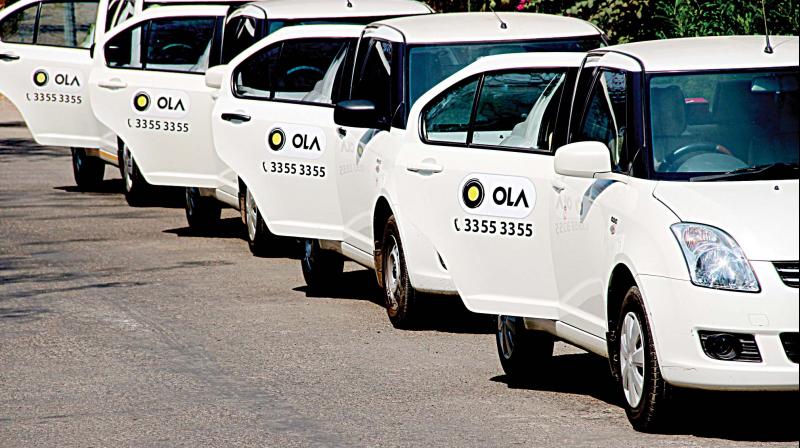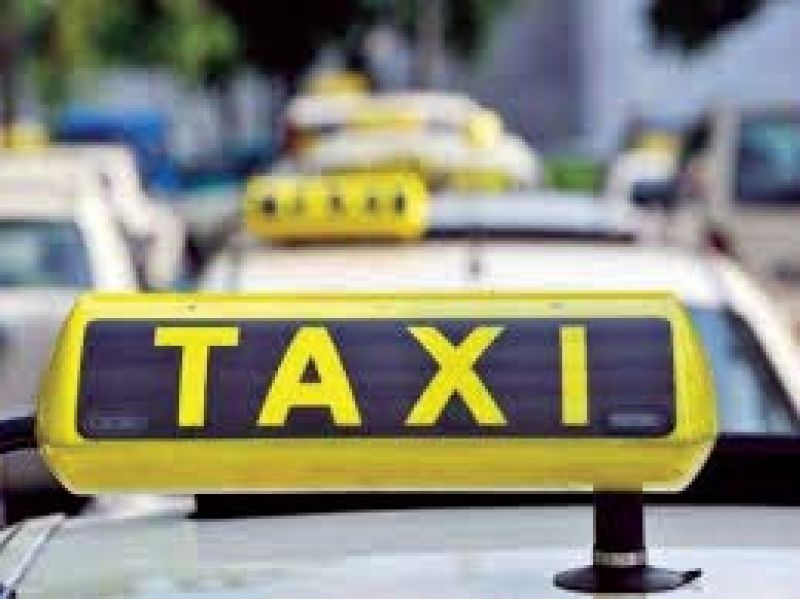Caution: Surge pricing ahead on hiring cabs

As if the ongoing cash crunch was not enough, the general public will now have to shell out more while hiring cabs. After the high court provided an interim stay against the state government’s rules on cab aggregators, surge pricing has become a reality. With the festival season around the corner and cab aggregators expected to make a killing, experts suggest that a regulatory body is needed to control the transport industry.
A month ago ordinary people gave a sigh of relief when the high court upheld government rules placing a ceiling on surge pricing by cabs. Middle class commuters going to work could book a cab, not have to negotiate the rate and avoid the stress of driving.
The maximum fare was fixed at Rs 14.5 per km for non- AC cabs, and at Rs 19.5 for AC cabs and cab operators were given time till December 10 to fall in line.
But people's joy was shortlived as cab operator Uber, appealed the court order upholding the Karnataka On Demand Transportation Technology Aggregators Rules, 2016 introduced earlier this year, and managed to get a stay on them.
The result was plainly visible last week when several passengers came across huge hikes in fares, especially during peak hours when the cabs are most in demand.
Said one disgruntled passenger, Gunjan Lahoti, “I use cabs every other day in Bengaluru. And last week I noticed an abnormal surge in prices when I tried booking an Uber from Bellandur to Wilson Garden. Usually, the fare is Rs 150 for this distance. But at 5pm, the price was hiked to Rs 250 and it remained so even at 6pm, 7pm and 8pm. I had no choice but to book an Uber pool later.”
Former transport commissioner, Ramegowda, says such surge pricing is inevitable now that the high court has given an interim stay against the rules introduced by the state government.“The interim stay has ensured that the transport department cannot touch cab companies that don’t follow the rules. They cannot be hauled up until the high court gives its final order,” he explained.
Transport Minister, Ramalinga Reddy, agrees that no coercive action can be taken as of now against overcharging cabs owing to the stay on the rules introduced. “But we have the right to issue notices to cab companies that are surge charging. We haven’t done so yet, but we will do it,” he asserted.
Joint Commissioner of Transport, Maruti Sambrani too says with the high court upholding the cap on surge charging, the cab companies can be issued notices if they don't fall in line despite the interim stay.
Asked about the many complaints against surge charging made by commuters last week, he said he himself hadn’t received any. “They need to complain to the department with the license plate number of the cab. As we have issued Ola a license we can check their data for surge charging. But Uber still does not have a license and so we can’t keep a check on it,” he added.
Experts in the field believe the current mess is all due to the absence of a law regulating cab operators. The question then is why isn’t the government trying to introduce one?
When the cabbie takes you for a ride...
Uber, which went to court challenging the Karnataka On Demand Transportation Technology Aggregators Rules, 2016 introduced earlier this year, argued the government had no authority to regulate cab aggregators under the Motor Vehicles Act.
But in November the High Court upheld the rules framed by the government, which among other things, regulate surge pricing by the cab operators. But unwilling to accept the order, Uber appealed against it and succeeded in getting an interim stay.
Strongly defending its stance, Uber spokesperson, Shonali says surge pricing acts as a bridge between demand and supply. “For instance, if 20 people need a cab in a given area where only five Ubers are available, the fares are hiked and drivers in other areas informed, so they can head towards the locality where the demand is high. It is an incentive for these drivers. Otherwise, why would a cab 10 kms away come to that spot?” she argued, adding that it was upto the passengers to accept a ride for the higher price or not.
“Those who are in urgent need of a cab, will opt for it even at the increased fare. And those who can wait for the price to come down, will do so,” she maintained.
So how much can a fare increase by? Ask Uber and its says this depends on the software algorithm that decides the surge charge based on demand and supply. “But if the company notices the price is abnormally high, it will take appropriate actions to reduce the charge,” it added.
But then what defines a normal and abnormal surge charge? The answer may have to wait till the High Court takes a final call on the rules introduced.
We should have a transport regulator: Sathya Sankaran, Founding Member,
Praja RAAG
There are two main points to consider on the issue of surge pricing by cabs. Firstly, there is no competent authority to oversee transport rules for all, be it buses or cabs. We need to have a Unified Metropolitan Transport Authority (UMTA) , a neutral body, to regulate transport. Just as there is TRAI for telecom, there has to be a competent body for transport too. Uber is pushing the boundaries in all countries and our government is not capable of doing anything about it. Secondly, where is the proof and data on surge pricing for penalisation? There is also no law made by a legislative body pertaining to the operation of cab companies and their licensing. Only if a cab company violates a law, can action be taken against it. But right now, there is no law in place and the transport department is merely a glorified licensing authority.
There has to be public consultation, cab companies given a hearing, data collection and inputs to make a law, but none of this has taken place. A law makes things fool-proof. In its absence Uber was able to appeal against the rules proposed by the state government and get an interim order on them. Also, the government needs to work on its technology as Uber, Ola and other such companies are far ahead in this aspect. The transport department needs to stay ahead of the game and have the technology to codify the process and make systematic intervention when required. Just like it is able to catch autorickshaws that over- charge, it must be able to haul up cabs as well.


